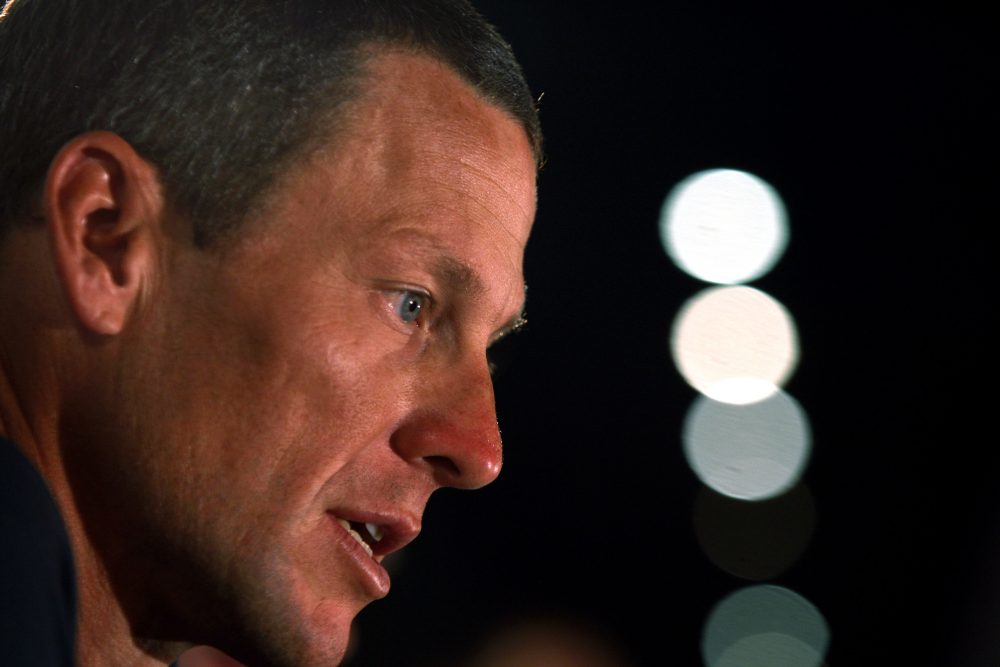Lance Armstrong: 'I admire those people who didn't dope'
Former rider also talks of his renewed love for cycling

Lance Armstrong speaks at a press conference.
The latest race content, interviews, features, reviews and expert buying guides, direct to your inbox!
You are now subscribed
Your newsletter sign-up was successful
Lance Armstrong has spoken of his admiration for cyclists in the 1990s and early 2000s who, unlike him, chose not to take performance-enhancing drugs.
Speaking on the Howard Stern Show, Armstrong said that he decided to take EPO when it became clear that that was what was necessary in order to win, and that he recognised that those riders who chose not to take drugs had often suffered as a result.
"We held out as long as we could against EPO," Armstrong said. "I'm not trying to justify my decision, but I left the US to go to Europe and I wanted to win.
"We had a choice and not everyone made the choices we made, and I admire those people who didn't [make the same choices], and instead had to go home or leave the sport."
>>> Lance Armstrong: I still put in the hard work, and I hope people don't forget that
Armstrong also echoed what he said in a podcast in February, saying that his return to the sport in 2009 was a mistake.
"Had I stopped riding in 2005 then it would have been over. The comeback from was the bridge to the past. That's what made the story relevant and gave the authorities the possibility to catch me."
The latest race content, interviews, features, reviews and expert buying guides, direct to your inbox!
Armstrong went on to explain how he had no problem with people who disliked him for his doping, but said that he is most ashamed of the way he defended himself against accusations of doping throughout his career.
"We live in an age where people don't have to come up to your face to give you s***. In fact that's never happened in the last five years, but they've got plenty of other channels to say stuff.
"And to the guy that says something on Twitter or Instagram or Facebook, I say 'I understand. I totally get it.'
"When I look back at it, the way I acted with the vehement denials and the way I went about defending myself... my ultimate torture would be if someone forced me to sit in front of a laptop and watch some of those press conferences. I was such a dick.
"But I can't change that. If somebody were to come up to me and say something then I'd just shake their hand and say 'I'm sorry'.
"I think people can get their minds around the doping, but they can't excuse the way I acted. That was by far the worse part."
>>> Cannondale pro impressed by Lance Armstrong's strength during 110 mile training rides
The disgraced former rider has recently competed in a 24 hour mountain bike race with three of his former US Postal team-mates, as well as riding with Lawson Craddock a current pro with Cannondale-Drapac .
According to Armstrong's Strava profile, he is now riding for around 10 hours most weeks, a big change from a few years ago when he was mostly running, something that Armstrong says is down to falling in love with cycling again.
"I still try to ride every day. I fell out of love with the sport - for three or four years I hated cycling because of what my life has looked like for the last four or five years.
"I had hard feelings towards the sport, towards the industry, towards the fans, towards the media... And they had hard feelings too. Everyone was pissed off."
"So I went back to running and swimming - the sports that I grew up doing. But the last six months I've started biking again, and I've been falling back in love with it."
Off the bike Armstrong is facing the prospect of a $100m lawsuit brought against him by former team-mate Floyd Landis and the US Justice Department, with the trial due to take place in November,
Henry Robertshaw began his time at Cycling Weekly working with the tech team, writing reviews, buying guides and appearing in videos advising on how to dress for the seasons. He later moved over to the news team, where his work focused on the professional peloton as well as legislation and provision for cycling. He's since moved his career in a new direction, with a role at the Department for Environment, Food and Rural Affairs.